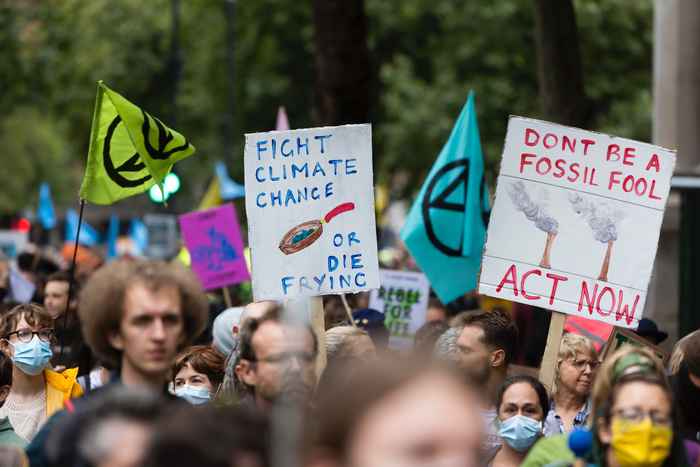Honoursmodule: How to Deal with Climate Anxiety? An Existentialist Approach (6 EC)
Although the (potential) huge impact of the changing climate on our lives and our physical and mental wellbeing has been known for decades, necessary fundamental changes are still not being made in our societies.

Logically, this leads to frustration, despair, anger, depression and/or anxiety among (young) people who do want to contribute to the necessary transition. While these kinds of emotions and thoughts are normal reactions to the situation, they can sometimes be difficult to handle. Existential thinking can help deal with these complex and sometimes conflicting emotions and thoughts. It can also help make meaningful decisions for a (green) life well lived.
Most existential thinkers have taken the personal, subjective perspective as their starting point. What is it like to be a conscious individual in a particular place at a particular time? What does that mean for such existential issues as meaning, living together, personal development and dealing with (the inevitability of) illness and death? These existential questions are given additional new meaning by the climate crisis. The climate crisis is at its deepest core an existential issue. It forces us - more urgently every year - to reflect on who we are as individuals and as a collective humanity, why we do what we do and how we deal with inevitable ecological and societal changes that will deeply affect our personal lives.
Using existentialist philosophy and thinking, this course provides an intellectual framework for students to reflect on their thoughts, feelings and behaviour in relation to the climate crisis. It also encourages them to make (new) life choices. The course consists of three parts: (1) existentialism as philosophy; (2) existentialism as therapy; and (3) existentialism in action. After a general introduction to the course and climate emotions, the first part of the course discusses the following topics: (1) what is existentialism; (2) inter-being-in-the-world; (3) facing the universe and our death; and (4) human growth. In the second part, students learn about (1) the existential dimension of psychotherapy; (2) ecopsychology; and (3) urban nature. The last part focuses on (1) values and action and (2) rethinking hope.
The course innovatively combines ideas from philosophy and psychology with current empirical research from various disciplines studying behaviour and the climate crisis (urban studies, political, economic, social and environmental sciences), and gives students ample opportunity to apply these ideas and insights to their own lives.
Coordinator
Dr. Max van der Linden
Timetable
All lectures will take place on-campus and we assume you can be physically present during the scheduled hours. You can find the timetable on Datanose.
Registration
Registration is possible for students participating in an Honours program. The registration period for the Honours courses will be from Friday, November 28, 10:00 am to Tuesday, December 2, 11:59 pm. You can register through the online registration form that will appear on Honoursmodules IIS. (registration is NOT through SIS)
Please note: Placement is not guaranteed if you register after December 2, so make sure you register on time. You will hear which course(s) you are registered for before December 31.
For questions about registration, please contact us at: Honours-iis@uva.nl
- Mode
- Honours programme
- Credits
- 6 ECTS,
- Language of instruction
- English
- Starts in
- February